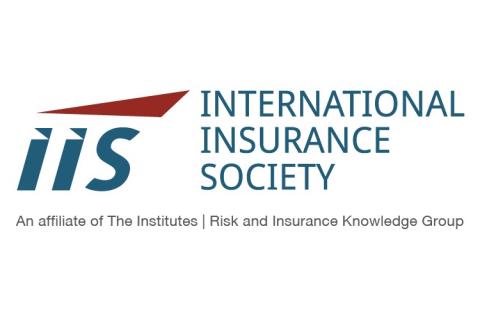Lead Story: Global Concerns Survey: Social & Environmental
Michael Morrissey, President & CEO, International Insurance Society, Inc.
Last month we presented our first report on the joint IIS and Institutes’ Global Concerns Survey of senior insurance company executives and other industry thought leaders. The objective of this annual effort is to examine “what keeps insurance CEOs up at night”. After delving into the survey’s responses on Economic Concerns in the last edition, we share results in May on Social & Environmental (S&E) Concerns.
Like the outcomes of virtually every aspect of the survey, those for S&E issues have been upended by the COVID-19 pandemic. Conducted shortly before the global coronavirus changed all of our business and personal lives, the ranking of respondents’ concerns was as follows. Healthcare was the #1 concern cited, ranked first by a whopping 65% of votes. Access to healthcare in both developed and emerging economies was the principal issue cited, although there was also great concern expressed about the mounting cost of healthcare.
The changing demographics of aging was also prominently mentioned, ranking second in the survey, with respect to both the healthcare and financial security issues of rapidly aging countries, and also the surge of younger age cohorts in poor countries with limited job prospects.
Bunched together in third place among the S&E concerns were Natural Disasters, Climate Change and Environmental Degradation. These issues, all broadly related to climate change, exemplify the insurance industry’s concern about the rising frequency and severity of losses arising either directly or indirectly from the global warming. Politicians may debate the magnitude or the ultimate causes of these changes, but insurers have to pay for them, and thus have more a practical perspective. Insurance fraud and mass migrations/refugee crises were also mentioned as serious S&E concerns by our respondents, but at a much lower level of apprehension.
Of course now everything has changed. The pandemic has affected industry leaders’ S&E concerns significantly. At the highest level, my conversations with industry thought leaders reveal a deep anxiety about the implications of a rapid shift to remote work for their organizations, with related concerns about employee safety and health, child care, social isolation and stress, productivity, the ability to maintain and build relationships and such issues. This makes the issue of what the insurance workforce of the future should look like even more important.
With respect to the environment in which they market their products and services, industry executives now ponder both the risk management and portfolio investment aspects of the implosion of mass events like conferences, concerts, sports events, etc. Event cancellation insurance may result in big claims in 2020, but what is the future of such events and the marketing of event protection? The travel, entertainment and hospitality industries are major revenue sources for the industry, and with a potentially long term reduction in both business and leisure travel, as well as a collapse of many bricks and mortar retailers, the industry’s commercial customer base is under severe pressure.
This litany of evolving S&E concerns not even on our radar screen when our survey was conducted does not even consider several background S&E issues that now loom larger in our minds. For instance, while environmental pollution is currently improving as industrial activity declines, (the air in Beijing and the water in Venice are almost miraculously clear) the crucial longer term the transition to renewable energy will very likely slow as public health expenditures by governments soar, and extreme weather events may continue to rise.
Globalization is under attack, as concern about supply chain dependence on other, sometimes adversarial, countries has caused many nations to look inward more. Nationalism, as a consequence, is on the rise. Fear of disease brought from other countries has resulted in more border closings, affecting the international flow of skilled labor on which many industries, including ours, depend.
Also of great concern to our industry is the metastasization of what has recently been called “social inflation”, the tendency of juries to award overly generous settlements in lawsuits against insurance companies. Now many politicians and regulators want insurers to pay for losses that were never included in the definition or pricing of their policies, notably in business interruption coverage, because of the enormity of the economic impact of the pandemic. This is a Social concern that represents an existential threat to the industry, and must be addressed in a fair and reasonable way by policymakers.
The areas of concern thoughtfully mentioned by our survey respondents are no less important now than they were BC (before COVID-19). They remain serious long term anxieties. They have simply been unceremoniously knocked down the priority list by the pandemic, the defining issue of our age.

